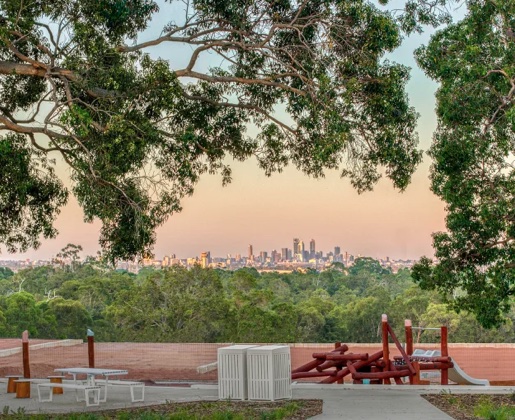7 questions to ask before buying house and land

Building a new home is exciting, but it's a big job requiring important decisions to be made.
That's why doing some research before starting the process can go a long way.
Here are some essential things to ask yourself before embarking on the journey.
1. Should you buy a house and land package?
When it comes to new homes, there are two standard pathways.
The first is purchasing a vacant block of land and then finding a builder at a later date.
This allows more time to save money before starting the build, but the downside is you'll have to do a lot of legwork independently. This option works well for those looking to build on a block of land with titles that are not yet available or those that are interested in building a bespoke home.
Those looking for a more streamlined option tend to go for a house and land package where a developer offers up lots with suitable house designs and an approved builder at an agreed price.
Every package is different with what is included, so ask your build team about this and decide what is worth upgrading to suit your lifestyle.
2. Is the location right?
Location is one of the most critical features of good real estate.
Such as school zones, lifestyle and amenities.
3. Is it an easy block to build on?
Selecting a block of land to accommodate a new house isn't always about price; it's about finding the best block for you.
Firstly, consider the size. Anyone building a sprawling home with four bedrooms and a media room will want to go bigger.
Also, look at the fall of the block and whether that will pose challenges.
Consider orientation with a north-facing block able to capture more sun in winter, where it's situated within the new community, and how close it is to the parks and shops.
"Walkability is obviously beneficial," says Angus Moore, realestate.com.au economist.
"It's very convenient to stroll to cafes, shops, and restaurants and not have to drive to access your everyday needs."
4. What are the rules you need to abide by?
Its true building gives you the flexibility to dream big, but often there are still guiding principles to factor in.
These could include council rules around noise, fire ratings or building restrictions.
You may also need to factor in outdoor space, car parking requirements and any design covenants that are in place.
5. What incentives are available?
With a big focus on housing affordability in recent years, governments across Australia have introduced grants and funding programs to help Australians buy a home.
"For first-time buyers in most states, they potentially have stamp duty concessions," Moore says.
"These cap out at roughly $800,000 but we've seen some states raise the caps recently."
Federally, the First Home Guarantee Scheme is designed to help first-home buyers buy their first property sooner with a deposit of as little as 5 per cent.
Additionally, there are programs that differ from state to state.
For example, in Western Australia, on top of land tax concessions, some buyers can also apply for low-cost loans through the Keystart initiative.
6. How does the financing work?
When approaching a bank or lender, it's important to realise that a new build differs from an established home purchase, as you'll need to secure financing in two separate components.
The first part is the land purchase, and the second is for the house construction.
"With a house and land package, you'll typically know upfront what the total cost will be," Rosser shares.
"This can be invaluable for first home buyers when securing finance and to downsizers or investors with specific budgets. Another thing to know is that payments are made in instalments to match the build's progress onsite.
"This means you're only making repayments on the portions of work actually completed."
Also, remember to factor in extra costs, including site preparation, groundwork, landscaping, finishings and furnishings as well as council permit fees.
7. How long does the new home journey really take?
While every house is different, it generally takes between than 19-24 months to build from when the land is purchased and the design is locked in.
PropTrack data shows that, on average, the home-building journey in Australia is currently taking around 22 months.
However, the time it takes to build is influenced by various factors, from design, size, location materials and weather.
Buyers can be sure that the journey takes time, so starting the journey sooner rather than later is recommended.
Source: https://www.realestate.com.au/advice/7-questions-to-ask-before-buying-house-and-land/

